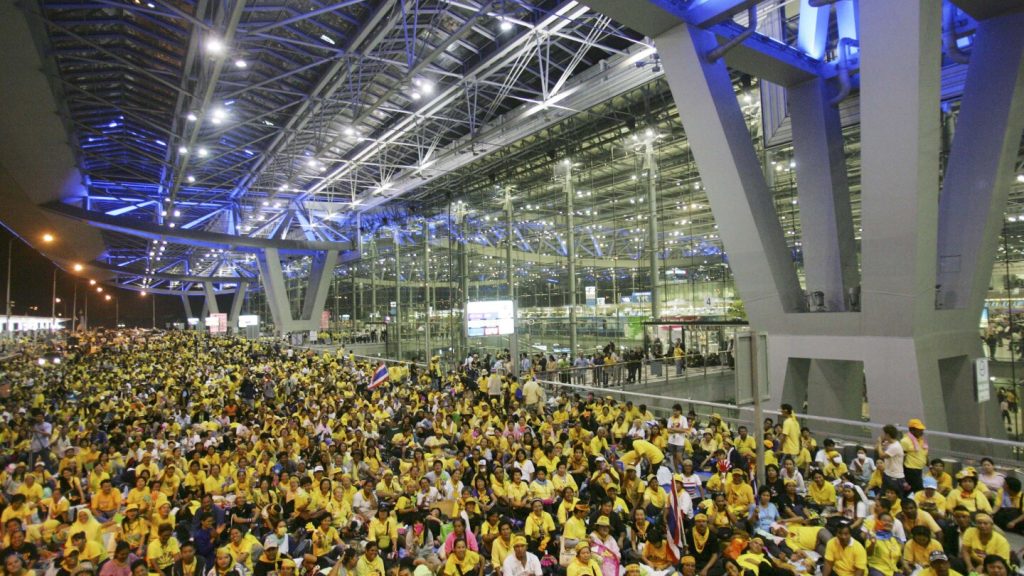In a significant decision, a Thai court acquitted nearly 70 individuals of all charges related to mass protests that took place in 2008, which resulted in the shutdown of Bangkok’s two airports for approximately 10 days. The protesters, who were part of the People’s Alliance for Democracy and opposed a government led by allies of ousted Prime Minister Thaksin Shinawatra, had been accused of serious criminal offenses such as rebellion and terrorism. However, the court ruled that their actions were protected under the constitution as they were peaceful and the protesters were unarmed.
The ruling marks the second time this year that individuals involved in the 2008 protests have been acquitted of charges. The court’s decision was welcomed by Panthep Puapongpan, a former spokesperson of the People’s Alliance for Democracy, who stated that their actions were for the greater good of the country as they were rallying against a government accused of abuse of power and corruption. Several defendants involved in the airport protests were divided into two groups and indicted in 2013, with the first group being acquitted in January.
The protesters, known as the Yellow Shirts for their loyalty to the Thai monarchy, had occupied Don Mueang and Suvarnabhumi airports in their demand for the resignation of the government loyal to Thaksin Shinawatra. Thaksin, who was ousted by a military coup in 2006 following large Yellow Shirt protests accusing him of corruption and disrespect of the monarchy, faced years of contention between his supporters and opponents. The airport operations were disrupted by the protesters, who defied an injunction calling for them to leave, and the siege only ended after a court ruling forced Prime Minister Somchai Wongsawat, who is Thaksin’s brother-in-law, out of office.
In 2011, the leaders of the People’s Alliance for Democracy were ordered by the Civil Court to pay 522 million baht ($14.7 million) in damages to the state airport authority. This resulted in the leaders being declared bankrupt and their assets being seized as partial payment of the sum in the following year. Thaksin Shinawatra, who returned to Thailand last year from self-imposed exile to face an eight-year prison term on several criminal convictions, was moved from prison to a state hospital due to reported ill health. After six months of hospital detention, he was released on parole. The court ruling in acquitting the protesters from the 2008 mass protests reflects a complex political landscape in Thailand and the ongoing tensions between different factions in the country.


